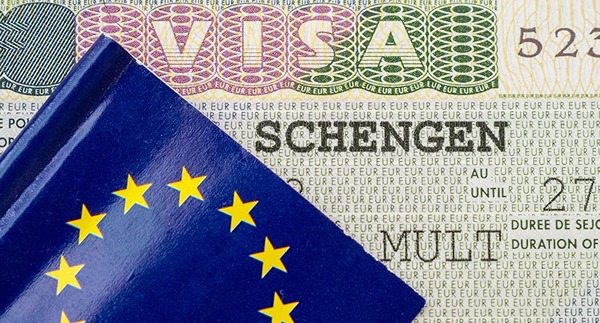The cost of obtaining a Schengen visa for citizens of non-EU nations would rise by 12%, from €80 to €90, and from €40 to €45 for minors, according to the European Commission.
This directive will go into force on June 11th.
The charge adjustment came after the Commission reviewed the matter for three years, and the Commission blamed the increase on inflation.
The Commission put up the fee hike proposal on February 2 after a meeting in December at which member states largely approved the revision.
Furthermore, the Commission has recommended that third-party providers of Schengen visas be permitted to increase their charges in compliance with this modification.
The Commission notes that even with this increase, the fees are still “relatively low” when compared to other nations, with visa charges starting at €134 in the UK, about €185 in the US, and €117 in Australia.
What To Note About Schengen Visas
The majority of EU nations, except for Romania and Bulgaria, as well as Cyprus and Ireland, accept Schengen visa holders.
However, the Schengen Convention also applies to non-EU nations including Lichtenstein, Norway, Iceland, and Switzerland.
These visas are necessary for non-EU nationals traveling outside of the 90-day visa-free period. They can be used for quick trips, such as vacations or visits with relatives, in 28 European nations.
However, holders of Schengen visas are not allowed to work in the host nation.
Citizens of the US, Canada, the UK, and Australia, in contrast to Nigeria, are eligible for 90 days of visa-free travel every 180 days and do not require a Schengen visa for quick trips.
External service providers, such as visa firms that process member state applications for Schengen visas, typically charge up to half of the regular fee.
The rise in this ceiling from €40 to €45 is part of the proposal.
The cost of extending a Schengen visa for an individual stays at €30.
The EU is currently thinking of raising fines even more for nations that accept the re-entry of people who have been expelled from member states but exhibit “insufficient cooperation on readmission.”
The charge may go up from €120 to €135 and from €160 to €180 for nations that have not shown cooperation concerning citizen readmission.
An overview of visas for Schengen
According to the Schengen Accord, Nigerians must apply for a visa to enter a specific nation.
It’s critical to comprehend the visit’s unique goal before applying. Applications for Schengen visas must be submitted at the main destination country’s embassy or consulate, where the applicant plans to spend most of their time.
As a result, if visiting many Schengen nations, the application ought to be sent to the consulate or embassy of the nation where you plan to stay the longest.
The application should be sent to the mission of the Schengen nation that serves as the initial port of entry in situations where the stay durations are equivalent.



